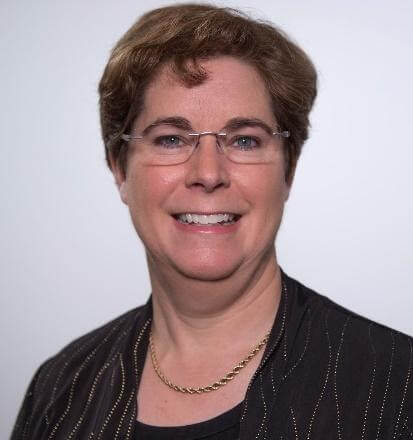Auto Industry Trends, Your Questions Answered
As most of the country opens back up, the Automotive Industry continues to see pent-up consumer demand, inventory shortages, and increases in vehicle prices. But, how long will it last? For our August 5 Market Pulse webinar, our panel of experts discussed the current and future state of the Automotive Industry. This month’s presenters included Amy Crews Cutts, President and Chief Economist at AC Cutts & Associates; Jonathan Smoke, Chief Economist at Cox Automotive; and Tom Aliff, Risk Consulting Leader at Equifax.
Presenters followed up with audience members’ questions* about inflation, the current economy, the latest auto industry trends, and more. Amy Crews Cutts, Jonathan Smoke, and Tom Aliff answer those critical questions below.
Watch a replay of our webinar, “Market Pulse: Interpreting Current Auto Industry Trends” or download a copy of the presentation.
Jump ahead to a specific topic:
General Economy
Are there any concerns that scores are not telling given the moratoriums?
 Tom Aliff: Last year we had
conducted several score simulation exercises covering what would
happen if accommodations rose upwards of 50% of the population. What
we found is that the predictiveness of the models did not deteriorate
when considering accommodations over a 12 month period. In terms of
the predictiveness now, the score to odds relationship did have a
change. Part of that simulation and consumers that have an
accommodation will have some score drift. In these scenarios, a score
of 700 may not equate to the same bad rate that the model intended
once the accommodation is lifted.
Tom Aliff: Last year we had
conducted several score simulation exercises covering what would
happen if accommodations rose upwards of 50% of the population. What
we found is that the predictiveness of the models did not deteriorate
when considering accommodations over a 12 month period. In terms of
the predictiveness now, the score to odds relationship did have a
change. Part of that simulation and consumers that have an
accommodation will have some score drift. In these scenarios, a score
of 700 may not equate to the same bad rate that the model intended
once the accommodation is lifted.
However, we've not seen anywhere near the types of volumes that would impact scores to the magnitude we examined in simulation. According to Equifax, we're seeing just over 2% of accounts that are in an accommodation status. These numbers are converging to the previous established baseline of accounts in an accommodation from last March before COVID.
 Amy Crews Cutts: A few
people have asked whether these accommodations are reported in a
consumer credit file. They are, and that's what Tom described in his
chart about possible accommodations. There are certain codes that the
CDIA recommended and they get used as a way to report this. And that's
exactly how he determined those. So, as a creditor you can find
whether someone had a possible accommodation when you look at that.
Amy Crews Cutts: A few
people have asked whether these accommodations are reported in a
consumer credit file. They are, and that's what Tom described in his
chart about possible accommodations. There are certain codes that the
CDIA recommended and they get used as a way to report this. And that's
exactly how he determined those. So, as a creditor you can find
whether someone had a possible accommodation when you look at that.
It's also important to look at trended data. Was somebody delinquent or on the rocks before they got the accommodation? Or, were they in the case of a student loan accommodation? Were they current before and after? That trended data value has gone up exponentially in this cycle relative to past ones. Now there is technology and pipes to handle that kind of big data.
Inflation
Is there a consensus on why inflation was low for so long? Can that provide any guidance for the present?
Amy Crews Cutts: We had good leadership at the Federal Reserve and other central banks, and the primary causes of affected inflation in the past were not present. When the financial crisis hit and the subsequent Great Recession, Ben Bernanke used his knowledge of mistakes in the Great Depression. He addressed the financial crisis and kept it from developing into a spiral of disaster, even though it was still a crisis. The OPEC oil embargo, departure from the Gold Standard, and WWII were extraordinary events that led to inflationary periods. I am confident that the economists at the Federal Reserve are debating all angles on this. They are deciding what they can do to mitigate inflation and support economic recovery.
Is part of the reason that the percentage of subprime loans has declined in mortgage and auto due to the credit score inflation that occurred throughout the pandemic?
Tom Aliff: Yes, that's absolutely an occurrence. Amy touched on that with respect to the balances, utilization, and delinquencies all being down. This does have an impact. However, it is not necessarily an artificial or fake increase. Those increases are data-driven. We are looking at VantageScore® 4.0, as a leveraging point of that, because it includes trended information as a component in the score calculation. So that way, when we think about balances and limits that occur over time, we can see how trended data predicts consumer behavior.
Jonathan Sm oke: The supply piece is
relevant to this too. We usually see strong new vehicle sales in the
fall because of the excitement on new models coming out and
discounting on older models. However, now we have no older model
inventory to discount and the new models are increasingly delayed.
We're probably not going to see this disproportionate growth as much
in the back half of the year in the auto loan originations, because
what we'll be selling will be more used vehicles. I think part of what
we've been seeing is just more of the effect of what was sold at the
end of this past year and the beginning of this year. And the supply
is definitely shifting and shifting what's available to sell.
oke: The supply piece is
relevant to this too. We usually see strong new vehicle sales in the
fall because of the excitement on new models coming out and
discounting on older models. However, now we have no older model
inventory to discount and the new models are increasingly delayed.
We're probably not going to see this disproportionate growth as much
in the back half of the year in the auto loan originations, because
what we'll be selling will be more used vehicles. I think part of what
we've been seeing is just more of the effect of what was sold at the
end of this past year and the beginning of this year. And the supply
is definitely shifting and shifting what's available to sell.
We have to remember that life events drive especially housing purchases. In my lifetime I've never been able to optimize the interest rate cycle relative to my own life events. So, I'm sure there are plenty of people in that category.
Amy Crews Cutts: Affecting mortgage rates is not so much the credit score, but the very low interest rates. If someone had the opportunity to cut $100 or $200 off their payment by refinancing, they'd jump in as soon as they could get someone to return a call. That aspect of originations is really what's driving it. You might say, "Well, hasn't everybody done this already?" Well, you can't get a mortgage if you're not employed. You need to wait a certain amount of time in your job before you are eligible for that. There's still a long tail of people eligible to refinance. And that should keep demand up as long as interest rates stay where they are at for a while.
Automotive
Are there parallels between what we are seeing with credit and prices in auto and other areas like housing and mortgage?
Jonathan Smoke: There are clearly absolute parallels. There are key supply problems and both have seen clear demand surges. So, we've been essentially dealing with a classic demand versus supply imbalance, which is the reason for the price inflation. It's also very interesting that credit is vitally important to both housing and auto and of course there's a self reinforcing mechanism here. That credit is also influenced by prices. But there are differences too. And this is where Amy Crews Cutts, and I may get into a little bit of a debate. But I would also point to an understanding that there are big differences in the lenders that are active in the two markets and there's a huge difference in the structure of the market in terms of the size of, say, securitization.
And as it relates to mortgage backed securities, it's very relevant to talk about the role of the government and the fact that the Fed has been buying mortgage backed securities and continues to do so. The government plays an enormous role. Mortgage plays almost no role in the automotive market. So, there are some interesting parallels and interesting differences.
Amy Crews Cutts: Yes, for sure. In both sectors, we've seen since the Great Recession, so go back to 2008 or so, tremendous underproduction of assets. So, not enough homes are being built on a per capita basis. Some housing becomes obsolete and has to be demolished and we're not really building enough to gain positive traction with regards to that. Then with the autos, we sort of had the same thing that started with the Great Recession, and the big slack demand, and the slack production that came out of that. Sales never have recovered up back to trend, on a per capita basis. The supply disruptions aren't going to have a long lasting effect. Housing as well as cars are not a commodity. It's not like a gallon of gasoline with certain properties.
Certain cars are in more demand than others. The ability to make these better cars with all the chips and things that are in there is a challenge. On the housing side, land prices permitting is still very hard. It's not just a lack of builder desire, but builder ability necessarily to meet those demands. So I see those as very critical.
Jonathan Smoke mentioned earlier about sort of our consumer credit standards getting looser. Is it a consumer thing? Is it the lender side? There's kind of components of both. I was just looking at how the GSCs have made it harder to get mortgages by tightening up the loan to value restrictions. And they do that when house prices are accelerating rapidly, and they don't know if they can really trust the appraisals like, is it real? Or is it temporary? Is it an appraisal problem? They tend to get a little stickier about that.
But also, I can't underscore the importance of what Tom said, that as consumers have used their payments from the federal government and reduced their debt loads, particularly credit cards and other sort of higher risk lending, the credit score migration is not fake. It's not score inflation. It is a true representation that households have improved their balance sheets. Maybe not every household, but in aggregate, that truth is there. The question though, that is hard to know about is once we start to see the forbearance programs come off, will there be additional stress on those payments? And will we see job stability continue to push those credit scores higher? I believe that we're in a pretty good place on that. I think it's more permanent than it might seem. However, that's my opinion.
In thinking about pricing and inventory constraints in auto, how are other industries affected? Travel, insurance, fuel, etc.?
Amy Crews Cutts: The same demand for new cars that consumers have exhibited is now coming back on car rental agencies. They dispersed some of their fleets earlier in the pandemic with the fallen demand. So much so that a car that I might have rented inclusive of tax for about $100 a day in Denver, is now at $250 to $300 a day and that’s if you can find an agency that has a car available. That was my recent experience. You might have others anecdotally, but I think it's definitely impacting capacity constraints in these other alternatives to car ownership pieces.
Jonathan Smoke : I look at the various financial data with Equifax, and what we see on the consumer spending on auto rental is that it is fully recovered and more than recovered. The latest numbers (shown in the webinar) were that people are spending 20% more this year in the most recent weeks than they were in the same weeks in 2019. However, clearly the same number of rentals aren't taking place.
There is quite a bit of inflation. Auto does seem to play a big role. When you look at the big categories that have driven the most transitory increases we've seen so far, it's used vehicle prices, new vehicle prices, and auto rental fees, but also a couple of other categories related to auto that aren't necessarily related to the prices, but definitely contribute to transportation, gas prices, and car insurance. They're clearly all connected. The only one that you can't blame auto for is air travel. A lot of that has to do with recovery more than anything else. But again, it affirms the idea that it's likely transitory.
With the sharp increase in used car prices, in your opinion, do you believe this is causing consumers to hold off on buying new cars, until inventories pick up again?
Jonathan Smoke: We're clearly seeing that effect in the slowdown in sales that we've seen in June and July. As a result used prices have rolled over and are now coming down in line with what looks like normal depreciation. So, it's not a correction. These dynamics will encourage more used purchases, especially as long as we're not going to see improvement. If somebody needs a vehicle, and they were originally planning on buying new, the chances of you finding exactly what you're looking for is as low as it's ever been in history. When you do, it's not going to be a great deal. But the used market is going to offer more alternatives and that's certainly through the end of this year.
The supply situation is going to start improving in the final quarter of this year on the new vehicle market. However, the recent surge in COVID cases is now threatening some shutdowns of supply factories around the world. We could be again seeing the news get worse before it gets better. What we know for certain, as long as new supply remains tight, new prices will continue to go up and incentives will continue to be low and that provides support for used prices remaining high. It's not going to be a condition for a correction. But we don't think we're going to have that stimulated demand that created that frenzy I described. Therefore, we're more likely to see more predictable patterns with vehicle prices just from this higher level that we've achieved.
Amy Crews Cutts: I see the same dynamic happening in homes. I have a used car because I can't get the new car that I want. I'm not going to sell my car. That being said you have this turnover problem with existing cars and existing homes that's also exacerbating that supply. I know the charts are showing subdued months of inventory of both new and used improving, but it is still down considerably. Prices don't decrease the demand. The price is the result of what's available and what people are willing to pay. This will have an impact on choices people make about whether to offer their car for sale because they're going to buy a new one, or whether now's a good time to start searching for a car, if they're not desperate. This would mean that their car's broken and irreparable.
What kind of trends are you noticing in the deep subprime auto segments - <550 segment? Do you expect any performance impact on these with stimulus and other benefits expiring?
Tom Aliff: Deep subprime is still performing well. We are not seeing significant increases in delinquencies in this space. I would expect to see some increases in this population when they come out of accommodation. We know that the majority or so of the disaster code forbearances are likely with subprime borrowers. Those that come off disaster forbearance are far more likely to go delinquent than others.
Why are Auto Originations growing?
Tom Aliff: Consumers have a much more free cash flow. In addition to the standard demand that usually exists for auto, consumers have more money and better credit on average now. People are qualifying for nicer vehicles at better rates on average.
Will Equifax disclose accommodations on the consumer credit file?
Tom Aliff: Equifax has created a set of attributes that provide information regarding accommodations on a consumer's credit file. Please reach out to your Equifax representative for additional information. Watch the August Market Pulse webinar for more on the current and future state of the Automotive Industry, access additional related insights on the Market Pulse hub, and register for upcoming webinars.
* The opinions, estimates and forecasts presented herein are for general information use only. This material is based upon information that we consider to be reliable, but we do not represent that it is accurate or complete. No person should consider distribution of this material as making any representation or warranty with respect to such material and should not rely upon it as such. Equifax does not assume any liability for any loss that may result from the reliance by any person upon any such information or opinions. Such information and opinions are subject to change without notice. The opinions, estimates, forecasts, and other views published herein represent the views of the presenters as of the date indicated and do not necessarily represent the views of Equifax or its management.
Recommended for you



